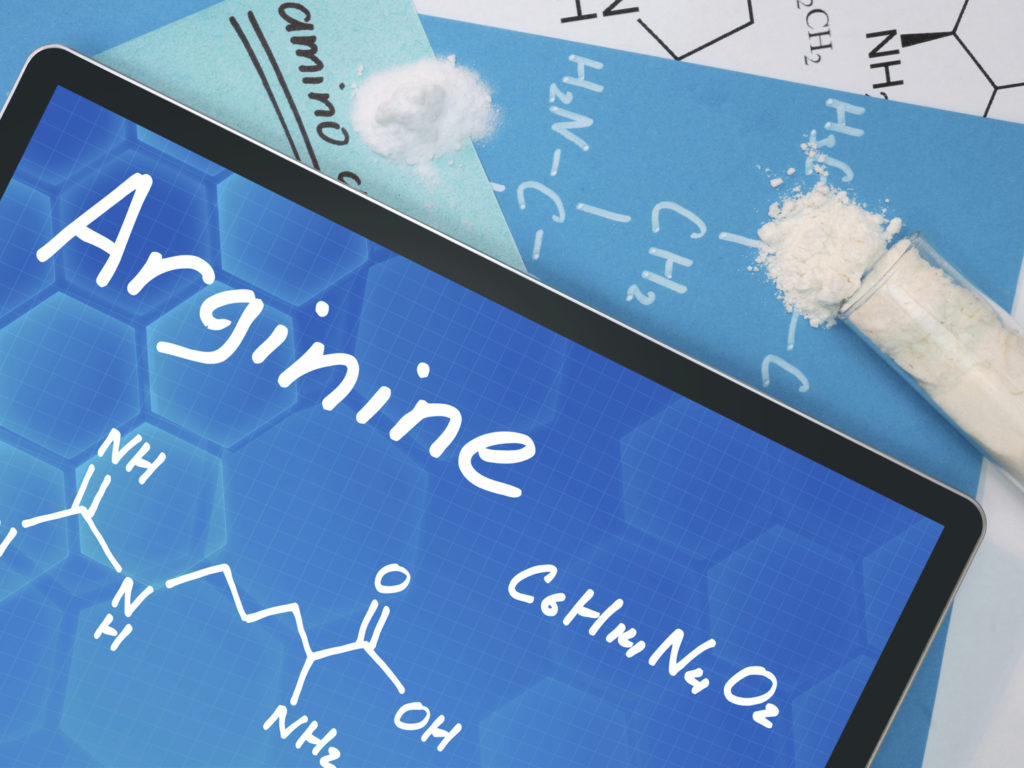What is L-arginine?
Your body needs substances called amino acids to build proteins for building tissues and muscles. L-arginine is one such amino acid that you can obtain through the consumption of red meat, fish, dairy products, and poultry, or medicines.
And therefore, researchers studied the efficacy of L-arginine to treat acute wounds and loss of tissue caused by serious illnesses.
How Does L-arginine Work?
After L-arginine intake, the body converts it into nitric oxide, a chemical compound, and releases it into the bloodstream.
It causes the wider opening of blood vessels to enhance blood flow throughout the body. L-arginine also triggers insulin and growth hormone release in the body, among other substances.
L-arginine should be produced normally and naturally in the body. However, there are circumstances when the body might not be able to consume or produce L-arginine.
It often happens to older people and those with medical conditions. During such cases, they take prescribed L-arginine as injections, oral medicines, or supplements.
When taken moderately, L-arginine is considered safe. But overdosing on this compound can lead to various side effects and even death.
Before taking L-arginine, especially in the form of supplements, it is crucial to know how it may interact with other medications and with your body itself.

Benefits of L-arginine
As mentioned earlier, L-arginine converts into NO (nitric oxide) and helps in protein production. Due to these effects, there are several potential benefits that you can get from L-arginine, including repairing wounds, enhancing male fertility, and improving heart health.
Although you might find many claims about how beneficial L-arginine is, scientific researches back up only some, here are some of the researched health issues that L-arginine can help treat:
High blood pressure: Studies show that oral consumption of L-arginine can help maintain blood pressure levels in healthy people, diabetics, and those who suffer from peaking blood pressures. L-arginine is also given intravenously to pregnant women developing high blood pressure. However, it is not certain if oral L-arginine consumption is equally helpful as an IV.
Necrotizing enterocolitis (NEC): NEC is a severe disease in a premature infant’s digestive tract. The addition of L-arginine into the formula helps in easing or preventing digestive tract inflammation in premature infants.
Peripheral Arterial disease: It is a condition of the body where the contraction of blood vessels causes insufficient blood flow to the legs and arms of a person.
Some research shows evidence that intravenous intake of L-arginine for eight weeks improves the flow of blood in people suffering from this disease. But it does not affect the walking speed even after prolonged (six months) use of L-arginine.
Angina:This chest pain disease is a result of poor blood circulation in the heart. According to research, L-arginine can reduce the symptoms of angina, increase exercise tolerance, and improve the overall well-being of people suffering from angina. However, there is no proof that L-arginine helps in the widening of blood vessels.
L-arginine for Erectile Dysfunction
There are extensive studies and researches on the treatment of Erectile Dysfunction using L-arginine. The results of these studies indicate that an L-arginine supplement is safe for most men, but there is no evidence or proof to show that it would restore erectility.
However, combining L-arginine with other substances gives different results. Here are two examples of such combinations:
L-arginine & Yohimbine HCl
An effective ED treatment, when combined with L-arginine, shows promising results, according to a study in 2010. The combination proved to be bio-available, safe and well-tolerated for most men who received the treatment. But the treatment was effective only for people with mild Erectile Dysfunction.
L-arginine & pycnogenol
While you might not get satisfactory results using L-arginine alone for treating ED, combining it with pycnogenol might actually work.
According to a study, pycnogenol supplements combined with L-arginine alleviated Erectile Dysfunction issues for men of 25 to 45 years of age and helped them achieve erections. There were also no side effects seen on these men with the given medication.
Combinations of L-arginine and L-citrulline, Propionyl-L-carnitine, or Adenosine monophosphate also prove to help men with ED.
In addition to these benefits, there are claims that L-arginine is also helpful in alleviating other health issues. However, there are no scientific researches that support them and need further evaluation. Some of the issues that L-arginine might be able to treat are:
- Poor blood flow
- Anxiety
- Post-surgery infections
- Schizophrenia
- Burns
- Altitude sickness
- Breast cancer
- Congestive heart failure
- Athletic performance
- Cystic fibrosis
- Diabetes
- Heart transplant complications
- Migraine
- Obesity
- Cavities, and more.
There are many other areas that interest researchers to explore about L-arginine and its effectiveness.
It is important to consult a doctor or physician about the potential risks and benefits of L-arginine before beginning to use it as a supplement. You should also carefully examine and understand the dosage instructions and benefits the producer is claiming to offer through their product.
L-arginine side effects
Different people will have different experiences when it comes to the benefits or side effects of L-arginine when taken in the form of a supplement. Regardless, here are some of the common ones that are likely to occur when you take L-arginine.
- Allergies
- Gout
- Increased symptoms of asthma
- Diarrhea
- Nausea
- Abdominal pain
- Low blood pressure
- Airway inflammation
Even though L-arginine may have several associated risks, the majority of researches indicate that people can take small doses of it.
Review the brand you are buying L-arginine from, as the U.S. FDA does not keep track of the potency and safety of L-arginine supplements.
One way of staying on the safe side while also getting your L-arginine is through foods. Protein-rich foods are the best sources from which you can naturally get L-arginine.
Red meat, pork loin, chicken, and dairy products are the main sources. But you can also obtain the compound from chickpeas, lentils, soybeans, pumpkin seeds, and peanuts.




